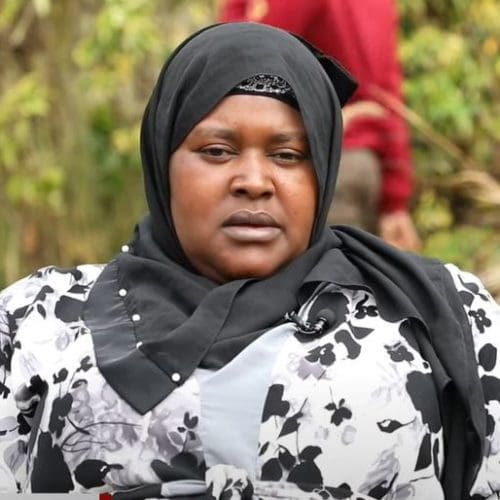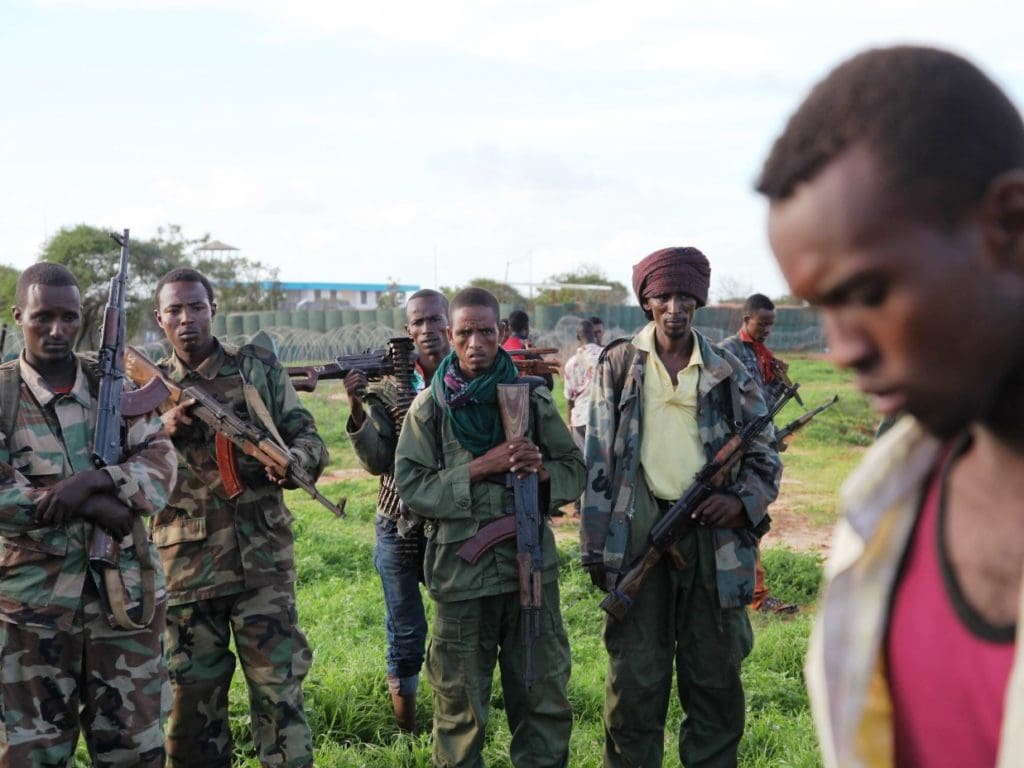Everyone turned against me because my son was a suicide bomber
I ran away out of fear of the government and the militia, ended up in a dangerous situation with an abusive drunk, and came home to news that my son died committing a terrorist attack. My heart broke. I asked the man on the phone if they buried him in Somalia and he said, “There is nothing left to bury.” My son’s body was blown to dust.
- 1 year ago
February 10, 2023

NAIROBI, Kenya – I lost my son to the unforgiving world of terrorism. He was a suicide bomber and the world turned against me. I had nowhere to run.
My son, my firstborn, joined the Al-Shabaab militia group at a very tender age without my knowledge. By 13 years old, they recruited and brainwashed him, turning him into a totally different animal. At first, I did not notice the changes taking place in my child. Then, in 2011, my son went missing. He left on a Saturday and I thought he went to his uncle’s house as usual. He never returned that day, nor on Sunday. I sat at the house wondering he was when I noticed writings on the wall in charcoal, in his handwriting.
Read more stories on terrorism and kidnapping in Kenya.
In the writings he said, “Mum don’t be mad at me, I’ll be back.” It terrified me and I dashed to the police station to report him missing. At that time, incidents sprung up of people missing, only to be found in Somalia’s Al-Shabaab militia group. After making my report at the police station, my friend connected me to a journalist who recorded audio of me begging my son to come home. The audio went viral. People began calling telling me to shut my mouth. They threatened to kill my son on arrival, so I kept quiet, holding on to hope he would return.
My house became a crime scene, out of fear I ran away
Soon, an anti-terror police unit arrived at my house asking questions about my missing son. In the early 2000’s people often sold children to the militia group. Al-Shabaab would recruit someone and give the family money, so people wondered if that might be the case with me. It was not.
In addition to facing suspicion, I feared physical harm. The anti-terror police were known to beat people to get information about their loved ones who joined the militia. I began to fear for my life and needed to find a way out. Then, my phone rang. My son called on a hidden number and we began to talk. I pled with him to come home, and he hung up on me. Eventually, he told me to stop crying and looking for him. He had become a suicide bomber.
Not only did we suffer his loss, but his actions deeply harmed his siblings and me. We desperately needed a shoulder to lean on. Instead, we suffered rejection. The pressure from both sides piled up. Al-Shabaab thought I fed information to the police about my son’s whereabouts. The anti-terror unit believed I got paid for surrendering my son to Somalia. This only added to my pain and the psychological torture I endured, so I decided to leave my children with their grandmother and run.
I woke up at 3:00 a.m., switched off my mobile phone, packed some things, and took off. The only person who offered me refuge was a man who lived in the Dandora slums. I had no feelings for him, but I needed a place to hide.
Out of the frying pan and into the fire
I quickly discovered I went from one bad situation to another. My host, an alcoholic, quickly took advantage of my vulnerability. He would come home drunk and start a fight, then he began abusing me sexually. When the fights got too loud and the beatings became brutal, the landlords kicked us out. I wanted to leave but I felt like a wanted person back home. I feared the militia and the government, and I lived in terror.
When I became pregnant by my abuser, I lost hope. I started to fight back physically but it only got worse. He viewed life like a battlefield. He relished in the fight and the injuries, and he threatened to kill me. To cope, I started using drugs and alcohol myself, but soon, my confusion cleared, and I thought about my unborn baby. I sat down by myself one day and slipped into the memories of my life and my children. If I did not do something, I would lose my future to fear and drugs. My mother had also been looking for me at that time. She wanted me home, caring for my children, so I went.
When I arrived home, neighbors quickly approached, saying they had news for me. One woman brought me her phone. She said someone wanted to talk to me and they would call shortly. In less than five minutes, the phone rang. A male voice on the other end of the line said, “Stop looking for your child.” He then told me, a suicide bomber attacked Mogadishu, the capitol of Somolia, and died. That suicide bomber was my son.
My son died a suicide bomber and I found other parents like me
I ran away out of fear of the government and the militia, ended up in a dangerous situation with an abusive drunk, and came home to news that my son died committing a terrorist attack. My heart broke. I asked the man on the phone if they buried him in Somalia and he said, “There is nothing left to bury.” My son’s body was blown to dust. I had nothing left of him; nothing to remember him by, not even a photo. When he left, he took all his belongings, and we gave his old clothes out to friends.
I stood there, weak from my pregnancy, with no moral support, financially broke and on my own. The news of my son’s act appeared on Al-Jazeera and international news outlets. No one consoled me and I worried about everything. If I cried, would the government think I’m a sympathizer? If I don’t cry, would my neighbors think I sold my son. Or, if I did cry, would they think I faked it? I felt like a lone soul, lost and confused.
After some time passed, I found others like me. The neighbors who had been looking for me while I was missing also had children in Somalia, working for the militia. They had contacts and that’s how they knew about my son’s death. I began to learn how the whole thing unfolded. Growing up in the slums, boys and girls face different challenges – different predators. Sexual predators hunt girls, while terrorists hunt boys. Innocent and gullible children fall victim to manipulation easily. For these criminals, brainwashing kids remains a simple task.
Connecting the dots to the man who recruited my son
Growing up, my son often spent the whole day playing at his aunt’s house. I never imagined anything improper happened there. This paternal aunt seemed like a responsible parent. I thought she would protect my children, just as I protected hers. I began noticing changes in my son after he went there. He dropped his friends and glued himself to the internet – reading and watching things. Still, I never fathomed he would become a suicide bomber.
Shock overtook me when the anti-terror police unit arrested his aunt’s husband for having ties to Al-Shabaab. Because my son spent a lot of time there, he must have been an easy target. I came to realize this man recruited, trained, and brainwashed my son to be a zealot. In some ways, I blame myself. I did not spend enough time with my son. I made it easy for them to win his heart.
Once they made the arrest, I easily connected the dots between this man and my son. I thought about my son’s behavior the days before he took off. He remained constantly on the phone and his belongings in the house slowly began to diminish. I just thought he left them at his aunt’s house. Little did I know, this well-planned and scripted process, facilitated by adults who took advantage of a young boy, would ultimately end his life. Accepting I will never see my son again proved to be the hardest challenge I ever faced. For so long, I found it impossible to cry and lived in shock. I lost him when he left for Somalia. I felt horrified to learn he joined a militia group. Then he died a suicide bomber – left in the dust of Mogadishu to rot like a person who never had people who loved him.
Mothers of lost children come together: “If I had known, my son might be alive today.”
I joined a group of mothers who lost children to Al-Shabaab because I needed to heal. Some lost their husbands while others lost sons or daughters. In certain cases, mothers lost nearly all the children in their house. I needed to move through the pain that came with the loss of my son, living life as a wanted person, enduring abuse and rejection, and facing a challenging pregnancy.
It took me over seven years to heal and really accept that my son is gone and will never come back. In this group, put together at a community-based organization, I finally cried out my pain. To that point, I never shed tears over my son’s death. I held so much fear over being perceived as a sympathizer, but the truth is, I lost a child.
I have come so far in my recovery. Today, when given an opportunity to the address the group, I talk like any other person would. When I first joined, I could not speak without crying. Today, I can share my story clearly.
The group also taught me so much about child monitoring in this environment. I know how to detect changes in behavior should it arise with my other children. They helped me understand that drastic and sudden changes in a child’s behavior means something. You need to investigate and talk to them immediately. Fixing the problem as early as possible can make a big difference. If I had known, my son might be alive today.











































































































































































































































































































































































